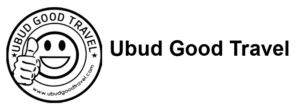SUNRISE-DOLPHIN SHOW (ON WILD LIFE)
PLACE WILL BE VISITED:
LOVINA BEACH
Lovina Beach (or often simply Lovina) is a coastal area on the northwestern side of the island of Bali, Indonesia. The coastal strip stretches from 5 km west of the city of Singaraja to 15 km west. Singaraja is the seat of Buleleng Regency. The Lovina area contains the small villages (from east to west) of Pemaron, Tukad Mungga, Anturan, Banyualit, Kalibukbuk, Kaliasem and Temukus. It is becoming more popular with tourists but remains far quieter than the tourist hotspots of the island’s south side.
The area takes its name from a home owned by Pandji Tisna (1908-1978), a Regent of Buleleng and pioneer of tourism to Bali in the early 1950s.Popular activities for visitors include early-morning boat trips off the coast to see wild life of dolphins.
AGROTOURISM (COFFEE LUWAK)
Kopi luwak or civet coffee, refers to the seeds of coffee berries once they have been eaten and defecated by the Asian palm civet (Paradoxurus hermaphroditus). The name is also used for marketing brewed coffee made from the beans.
Producers of the coffee beans argue that the process may improve coffee through two mechanisms, selection and digestion. Selection occurs if the civets choose to eat coffee berries containing better beans. Digestive mechanisms may improve the flavor profile of the coffee beans that have been eaten. The civet eats the berries for the beans’ fleshy pulp, then in the digestive tract, fermentation occurs. The civet’s Protease enzymes seep into the beans, making shorter peptides and more free amino acids.Passing through a civet’s intestines the beans are then defecated with other fecal matter and collected.
The traditional method of collecting feces from wild civets has given way to intensive farming methods in which civets in battery cage systems are force fed the coffee beans. This method of production has raised ethical concerns about the treatment of civets due to “horrific conditions” including isolation, poor diet, small cages and a high mortality rate.A 2013 BBC investigation of intensive civet farming in Sumatra found conditions of animal cruelty. Intensive farming is also criticised by traditional farmers because the civets do not select what they eat, so the beans are of poor quality compared to beans collected from the wild. According to an officer from the TRAFFIC conservation programme, the trade in civets to make kopi luwak may constitute a significant threat to wild civet populations.
Kopi luwak is produced mainly on the islands of Sumatra, Java, Bali and Sulawesi in the Indonesian Archipelago. It is also widely gathered in the forest or produced in the farms in the islands of the Philippines (where the product is called kape motit in the Cordillera region, kape alamid in Tagalog areas, and kape melô or kape musang in Mindanao island), and in East Timor (where it is called kafé-laku). Weasel coffee is a loose English translation of its Vietnamese name cà phê Chồn, where popular, chemically simulated versions are also produced.
ITINERARY:
- 30: Pick up hotel (ubud area), 02.30 (kuta, legian area), 02.00 (nusa dua, uluwatu, jimbaran area)
- 00: Visit lovina beach (place of dolphin) take a local boat and go to the sea (see wildlife of dolphin and sunrise )
- 00: Snorkeling (see a beautiful of underwater garden)
- 00: Back to the beach (parking area)
- 00: Visited agrotourism (coffee break)
- 00: Back to hotel
- 00: Arrived at hotel (depends about location of your hotel)
price:
- 2 person or more = U$D 50/person
- Single person = U$D 80/person
Includes:
- Car + Petrol
- Government tax and service charge
- Private full air-conditioning car
- Speaking English driver
- Boat ticket
- Life jacket (use for watching dolphin on the sea)
- Snorkeling equipment
- Insurance
- Parking fee and entrance fee
- Mineral water
Note: please bring your towel, some changing chlotes, sunblocks


